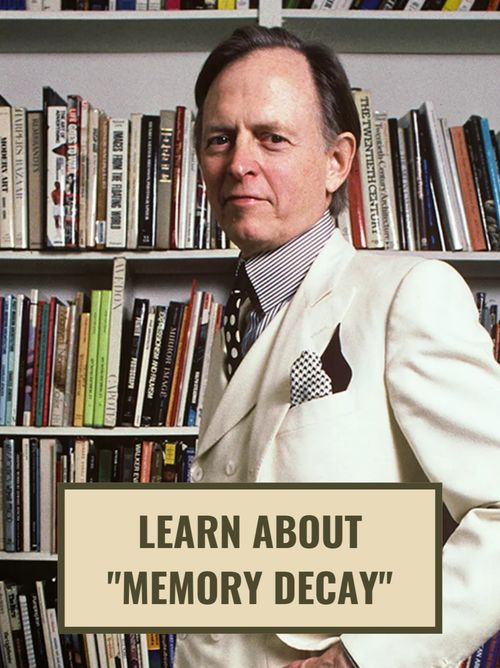Tom Wolfe on writer's block, note-taking, and more
Mar 03, 2022 · 2 mins read
0
Share

Tom Wolfe was an inventive and popular 20th century American writer. He is known for being one of the founding fathers of New Journalism - a unique, immersive, and unorthodox style of writing the news. Discover Wolfe's top insights on taking notes, the writers block, and more👇
Save
Share
On the importance of taking notes on the field, or before you sleep: "I find that memory decay is very rapid. Even going to sleep and waking up the next day, there’s an lot that simply doesn’t come back. At least it doesn’t come back accurately. So I do it as soon as I can."
Save
Share
"Emil Ludwig’s biography of Napoleon" was a big influence on Tom Wolfe. The biography is written in the "historical presence," and gave Wolfe a sense of being there that he aimed to recreate via his own work.
Save
Share
On cold mails: "I wrote over a hundred letters to newspapers asking for work and got three responses, two nos." Everyone is an obscure nobody at the start - it's important to keep shooting arrows. One day, an arrow lands.
Save
Share
Writing for newspapers can worsen your writing: "The newspaper is very bad for one’s prose style. Working on newspapers, you’re writing to a certain length, often very brief pieces; you tend to look for easy forms of humor. It becomes a form of laziness."
Save
Share
All clouds have silver linings: "But I wouldn’t give anything for the years I spent on newspapers because it forces you, it immerses you, in so many different sides of life." All the dimensions of life find their place in a newspaper - a valuable exposure for a writer.
Save
Share
Wolfe's inspiration: Serapion Brothers - a group of Soviet writers that combined the "aestheticism" of French symbolism, with the brutal reality of their Soviet lives. The mix of symbolic abstraction and realism appealed to Wolfe, and shaped his style.
Save
Share
The literary experiments in We. Eugene Zamiatin's We inspired Orwell's 1984, and it's punctuation experiments left a mark on Wolfe: "Zamiatin breaks off a thought in mid-sentence with a dash." He "quite correctly" mirrors actual thought, which doesn't happen in full sentences.
Save
Share
The definition of writer's block: "I now know what writer’s block is. It’s the fear you cannot do what you’ve announced to someone else you can do, or else the fear that it isn’t worth doing."
Save
Share
Bottom line. Note taking is an effective antidote to "memory decay," the much dreaded writer's block can be cured with the conviction that one's work matters, and one of the writer's best friends is the inspiration she gets from other books.
Save
Share
0